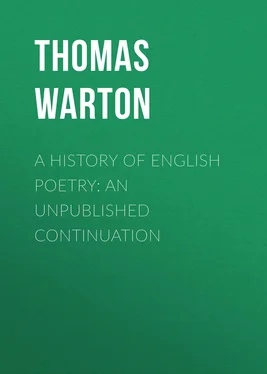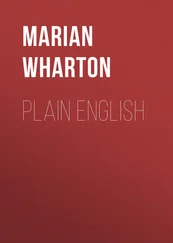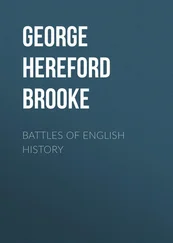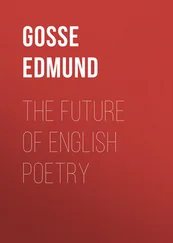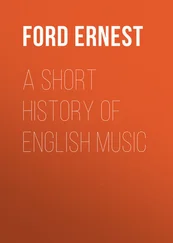Thomas Warton - A History of English Poetry - an Unpublished Continuation
Здесь есть возможность читать онлайн «Thomas Warton - A History of English Poetry - an Unpublished Continuation» — ознакомительный отрывок электронной книги совершенно бесплатно, а после прочтения отрывка купить полную версию. В некоторых случаях можно слушать аудио, скачать через торрент в формате fb2 и присутствует краткое содержание. Жанр: Путешествия и география, История, foreign_edu, foreign_antique, foreign_prose, на английском языке. Описание произведения, (предисловие) а так же отзывы посетителей доступны на портале библиотеки ЛибКат.
- Название:A History of English Poetry: an Unpublished Continuation
- Автор:
- Жанр:
- Год:неизвестен
- ISBN:нет данных
- Рейтинг книги:3 / 5. Голосов: 1
-
Избранное:Добавить в избранное
- Отзывы:
-
Ваша оценка:
- 60
- 1
- 2
- 3
- 4
- 5
A History of English Poetry: an Unpublished Continuation: краткое содержание, описание и аннотация
Предлагаем к чтению аннотацию, описание, краткое содержание или предисловие (зависит от того, что написал сам автор книги «A History of English Poetry: an Unpublished Continuation»). Если вы не нашли необходимую информацию о книге — напишите в комментариях, мы постараемся отыскать её.
A History of English Poetry: an Unpublished Continuation — читать онлайн ознакомительный отрывок
Ниже представлен текст книги, разбитый по страницам. Система сохранения места последней прочитанной страницы, позволяет с удобством читать онлайн бесплатно книгу «A History of English Poetry: an Unpublished Continuation», без необходимости каждый раз заново искать на чём Вы остановились. Поставьте закладку, и сможете в любой момент перейти на страницу, на которой закончили чтение.
Интервал:
Закладка:
Thomas Warton
A History of English Poetry: an Unpublished Continuation
INTRODUCTION
Among the unpublished papers of Thomas and Joseph Warton at Winchester College the most interesting and important item is undoubtedly a continuation of Thomas Warton's History of English Poetry . This continuation completes briefly the analysis of Elizabethan satire and discusses the Elizabethan sonnet. The discussion offers material of interest particularly for the bibliographer and the literary historian. The bibliographer, for example, will be intrigued by a statement of Thomas Warton that he had examined a copy of the Sonnets published in 1599—a decade before the accepted date of the first edition. The literary historian will be interested in, inter alia, unpublished information concerning the university career of Samuel Daniel and in the theory that Shakespeare's sonnets should be interpreted as if addressed by a woman to her lover.
Critically appraised, Warton's treatment of the Elizabethan sonnet seems skimpy. To dismiss the sonnet in one third the amount of space devoted to Joseph Hall's Virgidemiarum seems to betray a want of proportion. Perhaps even more damaging may seem the fact that Warton failed to mention more sonnet collections than he discussed. About twenty years later, in 1802, Joseph Ritson listed in his Bibliographia Poetica the sonnet collections of Barnaby Barnes, Thomas Lodge, William Percy, and John Soowthern—all evidently unknown to Warton. But Warton was not particularly slipshod in his researches. In his immediately preceding section, on Elizabethan satire, he had stopped at 1600; and in the continuation he deliberately omitted the sonnet collections published after that date. Thus, though he had earlier in the History (III, 264, n.) promised a discussion of Drayton, he omitted him here because his sonnets were continually being augmented until 1619. Two sixteenth century collections which Warton had mentioned earlier in the History (III, 402, n.) he failed to discuss here, William Smith's Chloris (1596) and Henry Lock's Sundry Christian Passions, contayned in two hundred Sonnets (1593). Concerning Lock he had quoted significantly (IV, 8-9) from The Return from Parnassus : "'Locke and Hudson, sleep you quiet shavers among the shavings of the press, and let your books lie in some old nook amongst old boots and shoes, so you may avoid my censure.'" A collection which certainly did not need to avoid censure was Sir Philip Sidney's Astrophel and Stella ; and for Warton's total neglect of Sidney's sonnets it seems difficult to account, for in this section on the sonnet Sidney as a poet would have been most aptly discussed. The Astrophel and Stella was easily available in eighteenth-century editions of Sidney's works, and Warton admired the author. Both Thomas and Joseph Warton, however, venerated Sidney mainly for his Arcadia and his Apology for Poetry . For Joseph Warton, Sidney was the prime English exhibit of great writers who have not, he thought, "been able to express themselves with beauty and propriety in the fetters of verse." 1 1 Joseph Warton, An Essay on the Writings and Genius of Pope (London, 1756-1782), I, 270-271.
And Thomas Warton quoted evidently only once from Sidney's verse, 2 2 Joseph Warton, An Essay on the Writings and Genius of Pope (London, 1756-1782), I, 270-271.
and then only by way of England's Helicon . 3 3 John Milton, Poems upon Several Occasions (London, 1785), ed. Thomas Warton, p. 331, n.
The omission of Sidney, then, is the glaring defect; of the dozen or so other Elizabethan sonnet collections which escaped Warton, most were absolutely or practically unknown, and none seem to have been available to him in the Bodleian or the British Museum.
At the time of his death, on 21 May 1790, there were in print only eleven sheets, 4 4 Nineteenth-century editions of the History give the false impression that the eight sheets were prepared from manuscript material left at Thomas Warton's death, but these sheets were certainly printed before Thomas died, and probably in the early 1780's. See John Nichols, Literary Anecdotes of the Eighteenth Century (London, 1812-1816), III, 702-703. They contain no reference postdating that to Isaac Reed's revised edition of Robert Dodsley's Collection of Old Plays , published in 1780.
or eighty-eight pages, of the fourth and final volume, which was scheduled to bring the history of English poetry down to the close of the seventeenth century. For four years after the publication of the third volume in 1781 Warton repeatedly promised to complete the work, 5 5 Thomas Warton to Richard Price, 13 October 1781, in Thomas Warton, Poetical Works , ed. Richard Mant (Oxford, 1802), I, lxxviii; Daniel Prince to Richard Gough, 4 August 1783, in Nichols, Literary Anecdotes , III, 702.
and a notice at the end of his edition of Milton's Minor Poems advertised in 1785 the "speedy publication" of the fourth volume. But to his printer Warton evidently sent nothing beyond Section XLVIII. The present continuation was probably written during or shortly after 1782: it contains no reference to any publication after William Hayley's Essay on Epic Poetry , which appeared in 1782; and according to Thomas Caldecott, Warton for the last seven years of his life discontinued work upon the History . 6 6 Thomas Caldecott to Bishop Percy, 21 March 1803, in Nichols, Illustrations of the Literary History of the Eighteenth Century (London, 1817-1858), VIII, 372.
The notes which Thomas Warton had made for the completion of the History were upon his death commandeered by his brother, Joseph, at that time headmaster of Winchester College. Joseph Warton made some halfhearted efforts to get on with the volume, 7 7 Joseph Warton to William Hayley, 12 March 1792, in John Wooll, Biographical Memoirs of the late Revd. Joseph Warton (London, 1806), p. 404.
but neither Winchester nor Wickham, whither he retired in 1793, was a proper place in which to carry on the necessary research. Moreover he was much more interested in editing Pope and Dryden; and securing advantageous contracts to edit these poets whom he knew well, he let the History slide.
Joseph Warton appears, however, to have touched up the present continuation, for a few expansions seem to be in his script rather than in his brother's. It is difficult to be positive in the discrimination of hands here, as Thomas Warton's hand in this manuscript is quite irregular. Pens of varying thicknesses were used; black ink was used for the text and red ink for footnotes, and one note (16) was pencilled. Moreover, certain passages appear to have been written during periods of marked infirmity or haste and are legible only with difficulty if at all. In any case, those additions which were presumably made by Joseph Warton merely expand the original version; they do not alter or modify any of Thomas Warton's statements.
In the text of the present edition the expansions which appear to be in Joseph Warton's hand are placed within parentheses, which were not used for punctuation in the text of the manuscript itself. Because of the difficulties of reproduction, all small capitals have been translated into lover case italics.
This continuation, discovered by the editor among the Warton papers in the Moberly Library at Winchester College, is here published with the kind permission of the Right Honorable Harold T. Baker and Sir George Henry Gates, retired and present Wardens of Winchester College, and of the Fellows of the College. The editor is indebted also to the Reverend Mr. J. d'E. Firth, Assistant Master and Chaplain; and Mr. C. E. R. Claribut and Mr. J. M. G. Blakiston, past and present Assistant Fellows' Librarians. The Richmond Area University Center contributed a generous grant-in-aid.
Читать дальшеИнтервал:
Закладка:
Похожие книги на «A History of English Poetry: an Unpublished Continuation»
Представляем Вашему вниманию похожие книги на «A History of English Poetry: an Unpublished Continuation» списком для выбора. Мы отобрали схожую по названию и смыслу литературу в надежде предоставить читателям больше вариантов отыскать новые, интересные, ещё непрочитанные произведения.
Обсуждение, отзывы о книге «A History of English Poetry: an Unpublished Continuation» и просто собственные мнения читателей. Оставьте ваши комментарии, напишите, что Вы думаете о произведении, его смысле или главных героях. Укажите что конкретно понравилось, а что нет, и почему Вы так считаете.
